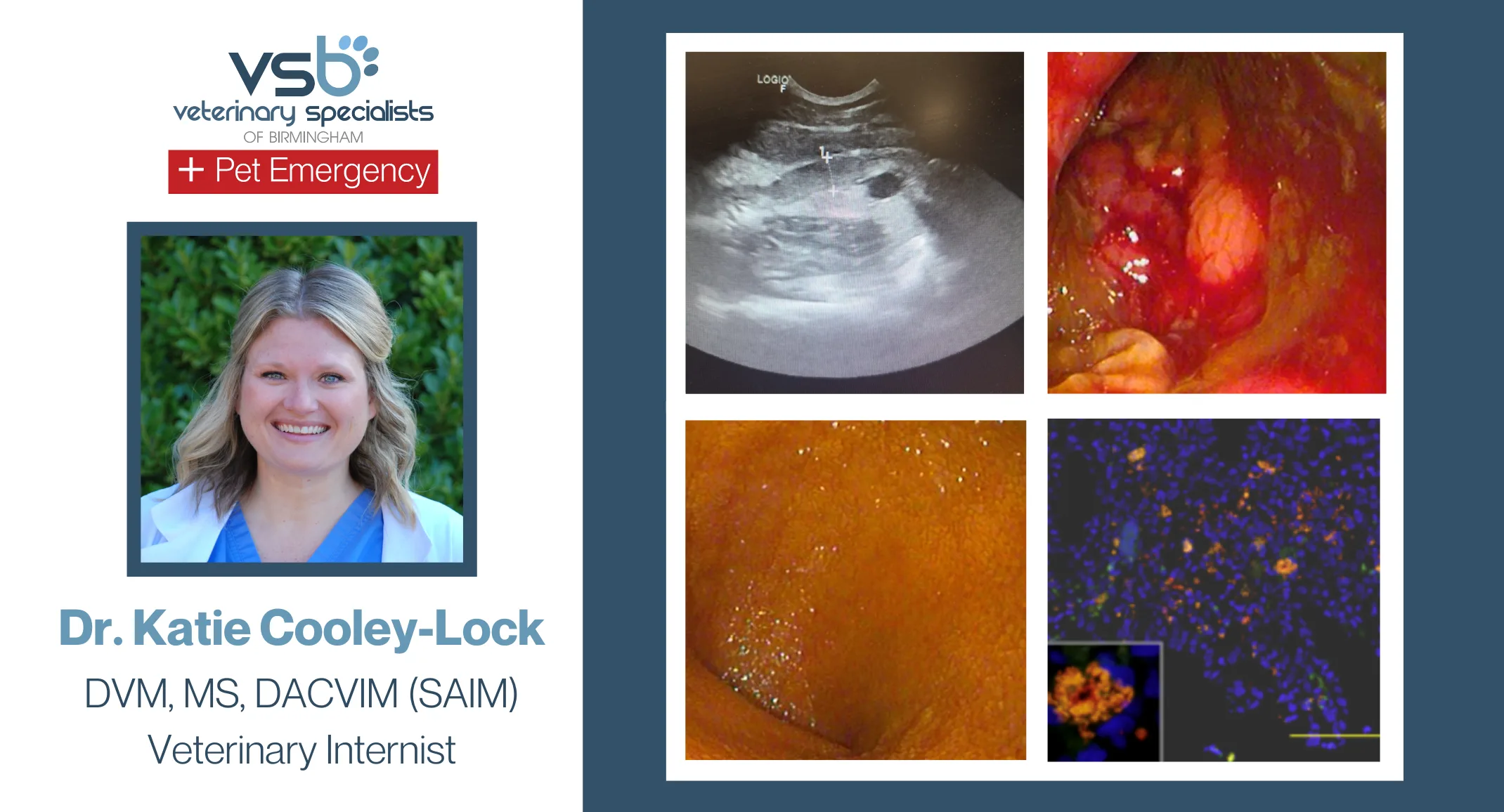Histiocytic Ulcerative Colitis in a Boxer
May 15, 2025 · Internal Medicine

Lucy, a 16-month-old female spayed boxer, presented to the Internal Medicine Service for hemorrhagic, large bowel diarrhea for a month’s duration. She noted to be losing weight and having a waxing and waning appetite. On physical exam, she was noted to have a low body condition score and mild muscle wasting along with thickened colorectal tissue and hemorrhagic, liquid feces.
Lab work revealed low protein levels along with low cobalamin levels, consistent with GI malabsorption. Her abdominal ultrasound revealed a severely thickened colonic wall measuring 7.2 mm in thickness (normal in 1-2 mm).
Therefore, it was elected to move forward with a lower GI endoscopy where samples were obtained from her ileum (lower portion of the small intestine) and colon.
The colon was noted to be severely ulcerative and easy to bleed, with multiple areas of ulceration.
The ileum (small intestine) was noted to have an abnormal mucosal appearance with prominent lacteals.
Biopsies confirmed Histiocytic ulcerative (granulomatous) colitis (Boxer Colitis), and specialized FISH (fluorescence in situ hybridization) revealed Lucy to have a robust signal for E. coli, confirming her diagnosis. FISH sample above highlights the E. coli bacteria within the colonic tissue.
Histiocytic ulcerative colitis is a disease that results in severe ulceration and inflammation of the colon and thickening of the colonic wall due to infiltration of inflammatory cells and bacteria (E. coli). It is most commonly seen in the Boxer and French Bulldog breeds at a very young age.
Clinical signs can include severe large bowel diarrhea (small, frequent bouts, mucus, blood, straining) along with weight loss and failure to thrive. Diagnosis is based off histopathological evaluation with concurrent special testing called FISH (fluorescence in-situ hybridization), which can tell us if there are invasive E. coli strains.
Treatment is geared towards diet, antibiotic therapy (enrofloxacin) and probiotics. The goal is to get patients solely on diet alone and achieve a remission state. Prognosis can range from guarded to good and is truly dependent on the response of the patient.
Lucy was placed on a medical regimen of a specialized diet (Hill’s GI biome), antibiotic therapy for 12 weeks (enrofloxacin), along with a probiotic and steroid (due to an IBD component in her small bowel). Lucy gained 13.2 lbs over a 7-month period and achieved complete remission with normal bowel movements on diet/probiotic alone.
Lucy is an excellent example of no matter how many negative prognostic indicators there are or how severe your disease is, where there is a will, there is a way. And Lucy found a way! Her owners were truly the real rock stars during her recovery, dealing with extreme diarrhea and a painful pup, and multiple medications. We are so thankful we were able to get Lucy into remission.
If you have a patient with a complex medical condition that needs to be seen by our internal medicine department, please submit the referral online or call our office at (205) 967-9107. Thank you for trusting us with the care of your patients and for your continued support.
